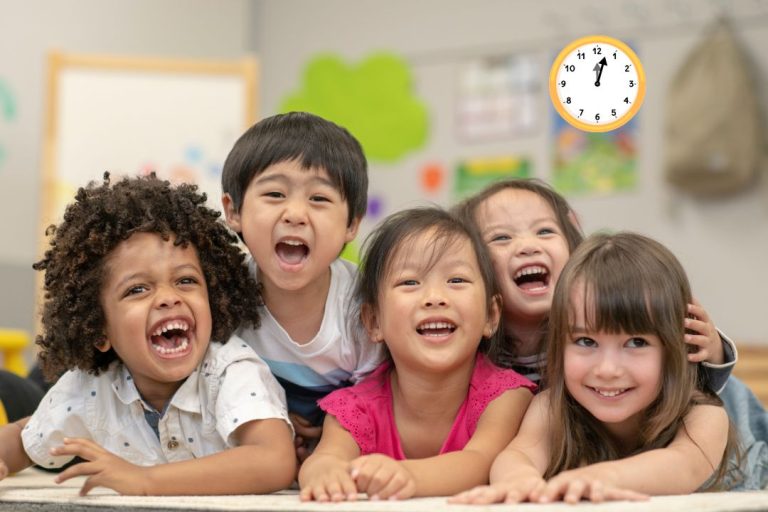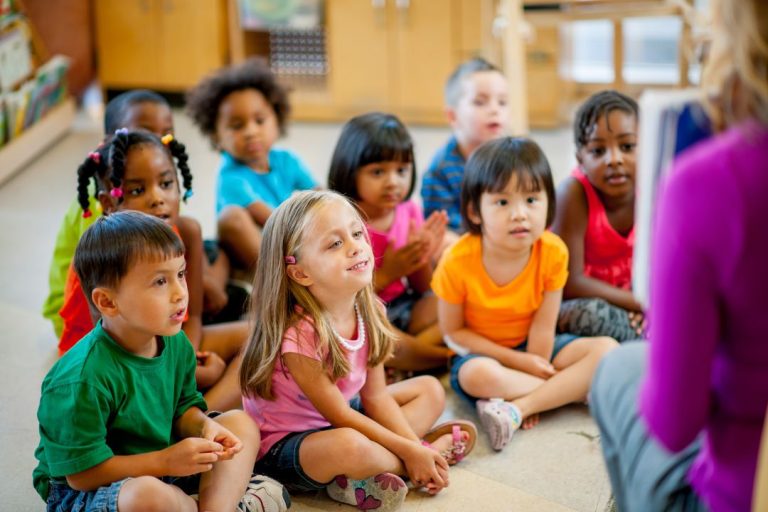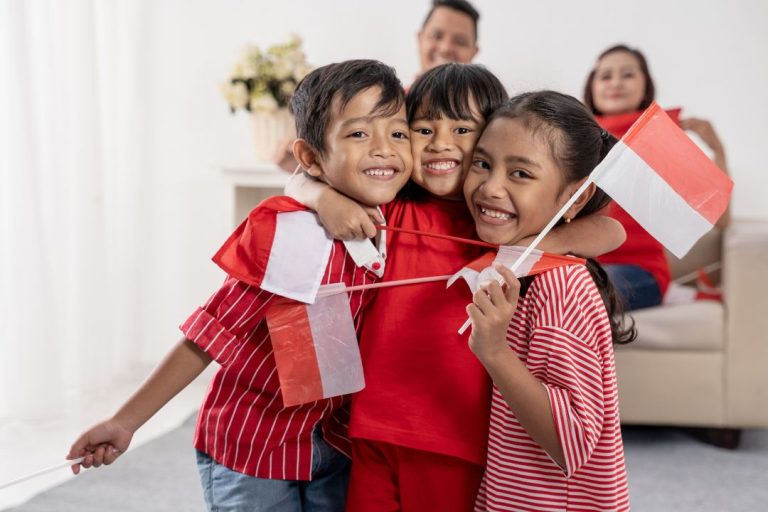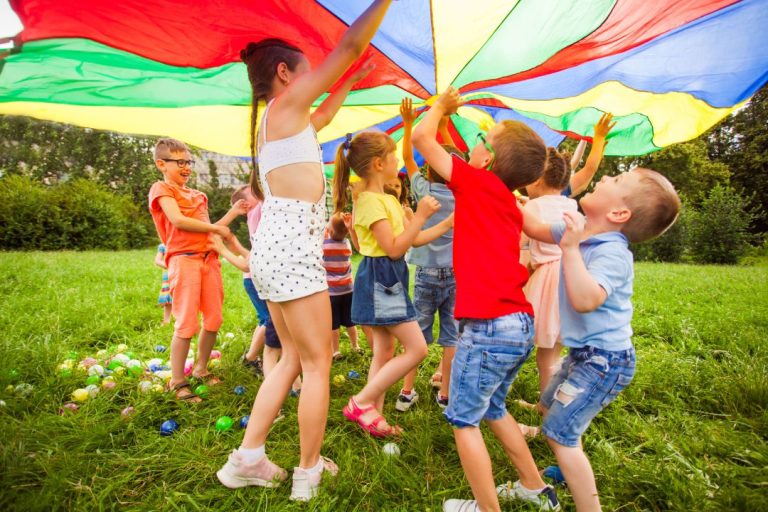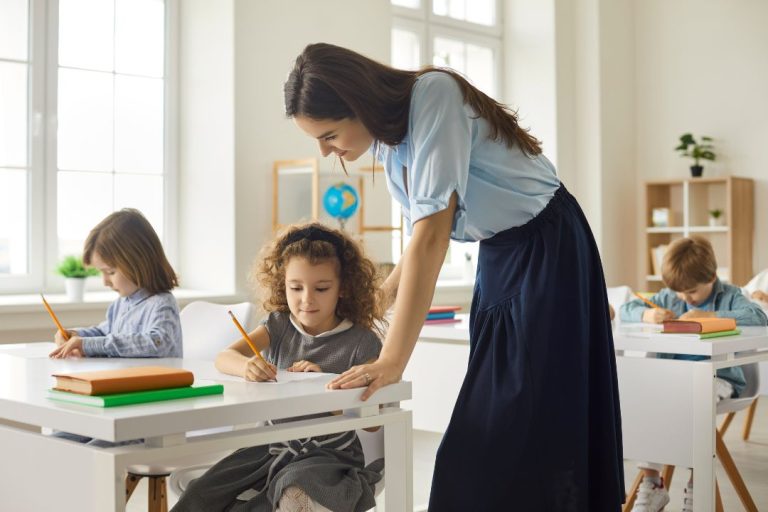The Benefits of Block Play in Kindergarten
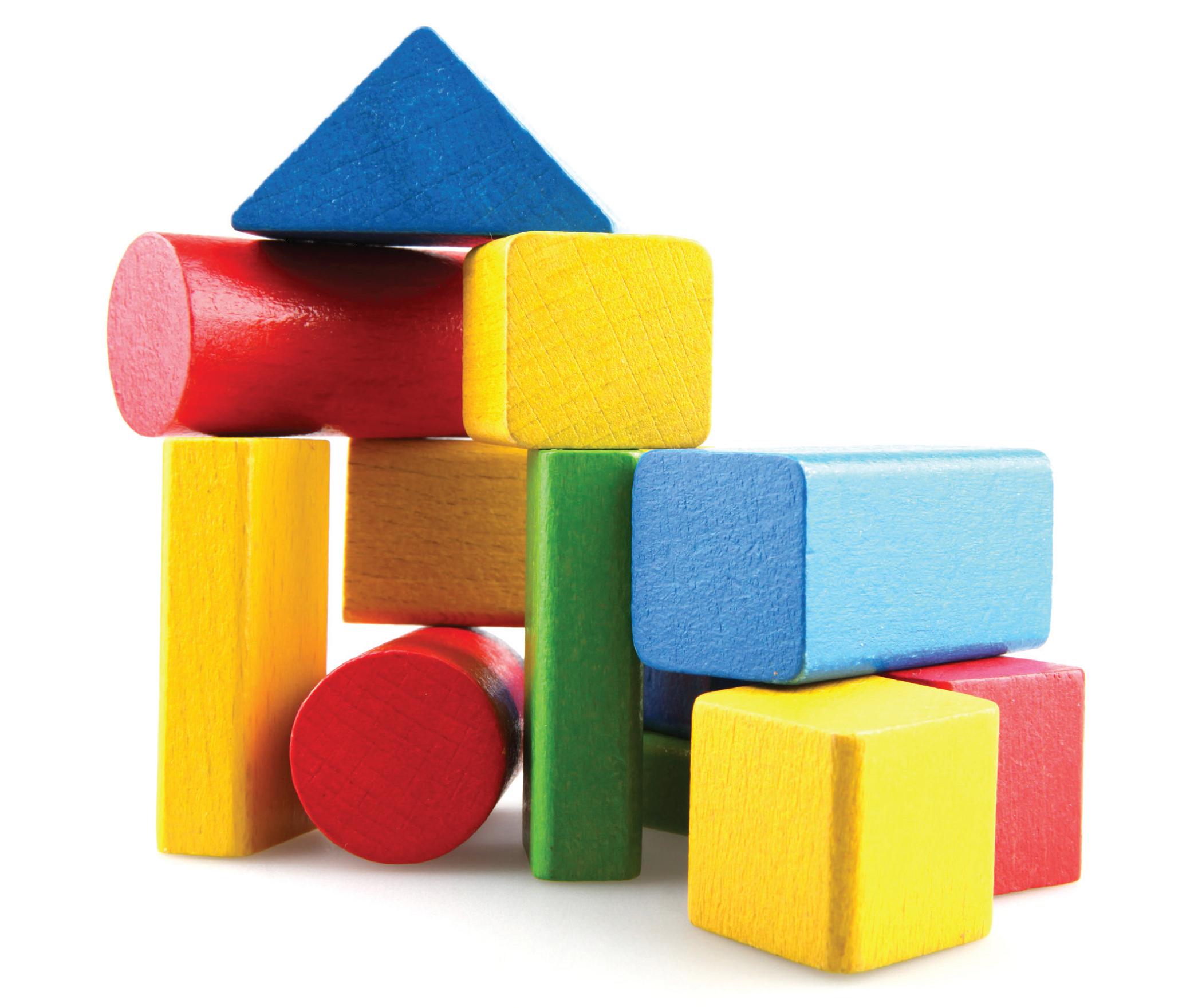
Block play in kindergarten offers numerous benefits, including enhancing fine motor skills, promoting problem-solving abilities, fostering creativity and imagination, and encouraging social interaction and teamwork. These hands-on experiences provide children with opportunities to explore and experiment, laying the foundation for crucial cognitive and socio-emotional development.
As children stack, build, and manipulate blocks, they develop spatial awareness, mathematical thinking, and language skills. Additionally, block play stimulates sensory integration and coordination, contributing to overall physical development. The multi-faceted nature of block play makes it an essential component of early childhood education, supporting holistic development in young learners.
Moreover, it serves as a valuable tool for educators to facilitate learning across various domains, making it an integral part of the kindergarten curriculum.
The Role Of Block Play In Child Development
Explores The Fundamental Importance Of Block Play
Block play is crucial in the early development of young minds. At its core, it provides a platform for children to engage in imaginative and creative expression. Through this activity, children can build, construct, and deconstruct, giving them a tangible understanding of spatial relationships and proportions.
Analysis Of Cognitive And Motor Skills Enhancement
Furthermore, block play fosters the development of cognitive and motor skills in young children. It supports the enhancement of problem-solving abilities, critical thinking, and spatial awareness. Additionally, through the manipulation of blocks, children refine their fine motor skills, which are essential for tasks such as writing and drawing.
Social And Emotional Benefits For Young Children
In addition to cognitive and motor skill development, block play also offers significant social and emotional benefits. As children engage with others in collaborative block building, they learn to communicate, negotiate, and work as a team. This interaction contributes to the cultivation of social skills and fosters a sense of cooperation and empathy.
Block Play Boosts Creative Thinking
Encouragement Of Imaginative Play
Block play in kindergarten encourages children to engage in imaginative play, allowing them to create and build their own worlds using their imagination. Through block play, children can construct various scenarios and stories, fostering their creativity and originality. This imaginative play also helps them explore different perspectives and think outside the box.
Development Of Problem-solving Abilities
The process of building and constructing with blocks entails overcoming various problem-solving challenges. Children learn to plan, organize, and arrange blocks to achieve specific designs and structures. As they encounter obstacles and find solutions, their problem-solving skills are honed. This hands-on experience also helps them develop spatial awareness and understand concepts such as balance, symmetry, and stability.
Influence On Abstract Thinking Capabilities
Engaging in block play supports the development of abstract thinking capabilities in kindergarten children. As they manipulate and arrange blocks in different ways, they begin to grasp abstract concepts such as size, shape, and space. This activity stimulates their ability to conceptualize and visualize ideas in a three-dimensional manner, enhancing their cognitive development.
Block Play And Physical Growth
Block play in kindergarten has significant benefits for children’s physical growth and development. The act of playing with blocks involves various physical movements and actions, contributing to the overall physical development of young children.
Fine Motor Skills And Hand-eye Coordination
Engaging in block play requires children to manipulate and maneuver the blocks using their hands and fingers, which helps in the development of fine motor skills. The ability to grasp, stack, and align the blocks also enhances hand-eye coordination, allowing children to precisely place the blocks in desired positions.
Spatial Awareness And Navigating Three-dimensional Space
Playing with blocks enables children to gain a better understanding of spatial relationships and proportions. They learn to visualize and manipulate three-dimensional objects, enhancing their spatial awareness. Furthermore, navigating and arranging blocks in various configurations provides valuable experiences for understanding spatial concepts.
Structured Play Versus Free Play
When it comes to early childhood education, the debate between structured play and free play is ongoing. Structured play consists of teacher-directed activities, while free play involves child-led, open-ended exploration. In the context of kindergarten, block play is a perfect example of how these two types of play can complement each other, providing numerous developmental benefits for young children.
The Balance Of Guided Activities With Open-ended Play
Kindergarten students benefit from a balanced approach that incorporates both structured and free play. Structured activities can help introduce new concepts and support skill development, while free play allows children to explore, experiment, and apply their knowledge in creative ways. Block play provides an ideal platform for this balance, as it allows for both teacher-guided activities, such as building challenges or group projects, and unstructured exploration, where children can build and create based on their imagination.
Importance Of Autonomy In Block Selection And Construction
Autonomy plays a crucial role in the development of young children, and block play offers an opportunity for students to exercise choice and decision-making. By allowing children to select their blocks and construct their creations, educators empower them to take ownership of their learning. This autonomy fosters creativity, problem-solving skills, and confidence in their abilities, all of which are essential for their overall development.
Social Skills Fostered By Block Play
Block play in kindergarten not only sparks creativity and imagination but also fosters essential social skills in young children. Through collaborative activities, communication scenarios, and role-playing, block play encourages the development of key social attributes that are vital for a child’s overall growth.
Cooperation And Collaboration During Group Play
Cooperation and collaboration are innate byproducts of block play, allowing kids to work together to build intricate structures or imaginary cities. In a group setting, children learn to share ideas, negotiate roles, and combine efforts to achieve a common goal. This nurtures a sense of teamwork and empathy, crucial for their social development in kindergarten and beyond.
Communication Enhancement Through Play Scenarios
Communication thrives during block play as children engage in play scenarios that require them to articulate their ideas and listen to others. Whether constructing a story around their building or discussing the design of their creation, children are constantly exchanging thoughts and refining their verbal and non-verbal communication skills.
The Role Of Block Play In Understanding Sharing And Turn-taking
Block play teaches children the fundamental principles of sharing and turn-taking. When sharing blocks or waiting for a turn to use specific pieces, children learn the importance of patience, empathy, and reciprocity. This early understanding fosters a positive attitude towards teamwork and cooperation, laying the groundwork for healthy social interaction.
Inclusive Block Play In Kindergarten
Inclusive block play in kindergarten is a valuable educational tool that fosters inclusivity, cooperation, and socialization among young children. Through inclusive block play, children of diverse abilities, backgrounds, and learning styles can interact and learn together in a supportive environment. This form of play promotes acceptance and understanding, laying the foundation for positive peer relationships and a sense of belonging for every child.
Adapting Block Play For Children With Diverse Needs
Adapting block play for children with diverse needs allows every child, regardless of their abilities or challenges, to participate fully in the learning experience. By incorporating various sensory materials, such as large blocks for children with motor skill challenges or visually stimulating blocks for children with visual impairments, educators can ensure that all children have equal access to the benefits of block play.
Encouraging Interaction And Acceptance Among Peers
Encouraging interaction and acceptance among peers is a key aspect of inclusive block play. This form of play provides a platform for children to engage with one another, collaborate on building projects, and develop social skills. Educators can facilitate group activities that promote teamwork and cooperative play, fostering an environment where every child feels valued and included.
Cognitive Milestones And Block Play
Block play in kindergarten has a significant impact on cognitive development, as children engage in creative and open-ended play while also honing crucial skills. The cognitive benefits of block play are far-reaching, influencing various aspects of a child’s mental growth. In this section, we will delve into the cognitive milestones achieved through block play, focusing on conceptualizing mathematics through shapes and structures, as well as the influence of block play on pattern recognition and sequencing.
Conceptualizing Mathematics Through Shapes And Structures
One of the key cognitive milestones achieved through block play is the conceptualization of mathematics through shapes and structures. As children manipulate blocks of different sizes, shapes, and colors, they naturally begin to understand mathematical concepts such as geometry, spatial awareness, and measurement. Through building and arranging blocks, they grasp fundamental mathematical principles while developing problem-solving skills, spatial reasoning, and an intuitive understanding of geometric relationships.
Block Play’s Influence On Pattern Recognition And Sequencing
Block play also plays a pivotal role in fostering pattern recognition and sequencing abilities in young learners. As children experiment with arranging blocks in various patterns and sequences, they develop a deeper understanding of order, logical reasoning, and pattern formations. This not only enhances their cognitive flexibility but also lays the groundwork for future mathematical and logical endeavors. Moreover, engaging in block play helps children develop the ability to predict and anticipate outcomes, fostering a sense of control and mastery over their environment.
The Benefits Of Block Play In Kindergarten
Block play in kindergarten offers numerous benefits for children’s development. It fosters creativity, problem-solving skills, and spatial awareness. Additionally, it encourages collaboration and social interaction, leading to well-rounded cognitive and social growth.
The Benefits of Block Play in Kindergarten
Block play is a foundational activity in early childhood education that offers numerous benefits for kindergarten-aged children. The interactive and exploratory nature of building with blocks provides a wealth of opportunities for cognitive, social, and physical development that are essential for academic success and overall well-being. Kindergarten teachers and parents often overlook the significance of block play, however, the benefits it offers are invaluable.
Linking block play to academic performance in early education
Block play is not just about stacking and building; it also has a significant impact on the academic development of kindergarten-aged children. Research has shown that engaging in block play enhances children’s math skills, spatial reasoning, and problem-solving abilities. Through hands-on manipulation and arrangement of blocks, children develop their understanding of mathematical principles such as measurement, geometry, and symmetry. Additionally, block play fosters creativity and imagination, which are crucial skills for academic success in various subjects.
Preparing children for future learning through play-based exploration
Furthermore, block play prepares children for future learning by fostering critical thinking, collaboration, and communication skills. As children engage in cooperative block play, they learn to negotiate, share, and communicate their ideas with peers, laying a strong foundation for effective teamwork and social interaction. These essential skills are the building blocks for success in school and beyond.
In conclusion, the benefits of block play in kindergarten extend far beyond simple play. Engaging in block play not only supports academic performance in early education but also equips children with essential skills for future learning and success. Encouraging and facilitating block play in kindergarten settings is crucial for promoting holistic development and preparing children for the challenges and opportunities that lie ahead.
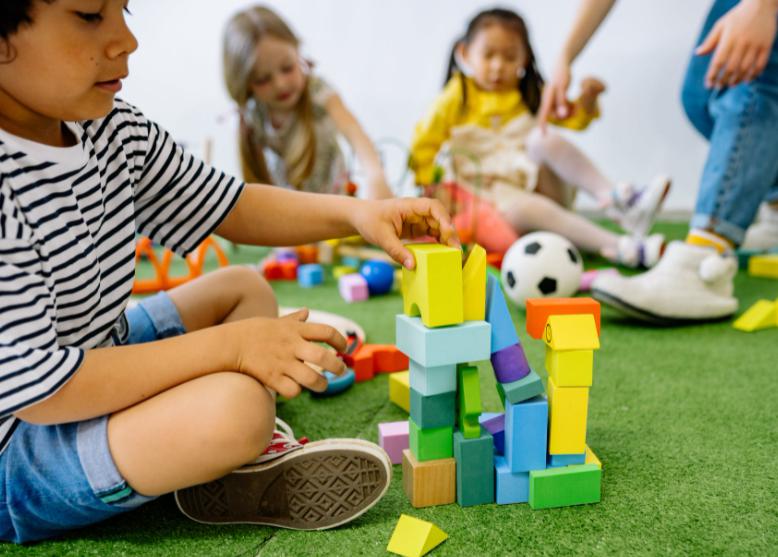
Frequently Asked Questions Of The Benefits Of Block Play In Kindergarten
Why Is Block Play Important For Kindergarten Children?
Block play is crucial for developing fine motor skills, spatial awareness, and creativity. It also fosters social skills, and problem-solving abilities, and promotes language development.
What Are The Benefits Of Integrating Block Play In Kindergarten Curriculum?
Integrating block play enhances cognitive development, encourages teamwork, and stimulates imagination. It also nurtures critical thinking, promotes sensory exploration, and provides an avenue for self-expression.
How Does Block Play Contribute To Kindergarten Children’s Learning Experience?
Block play supports the development of mathematical concepts, such as shape, size, and counting. It also facilitates the understanding of scientific principles, promotes experimentation, and nurtures an understanding of cause and effect.
Conclusion
Block play in kindergarten offers numerous benefits for children’s development. It fosters creativity, problem-solving skills, and social interaction. Through hands-on exploration, kids develop spatial awareness and mathematical concepts. Additionally, it promotes fine motor skills and enhances language and communication abilities.
Embracing block play in early education is essential for holistic growth.

With over 20 years of experience in early childhood education, Jane brings a wealth of knowledge to Classroom Journey. She specializes in play-based learning and has a passion for inclusive education.

